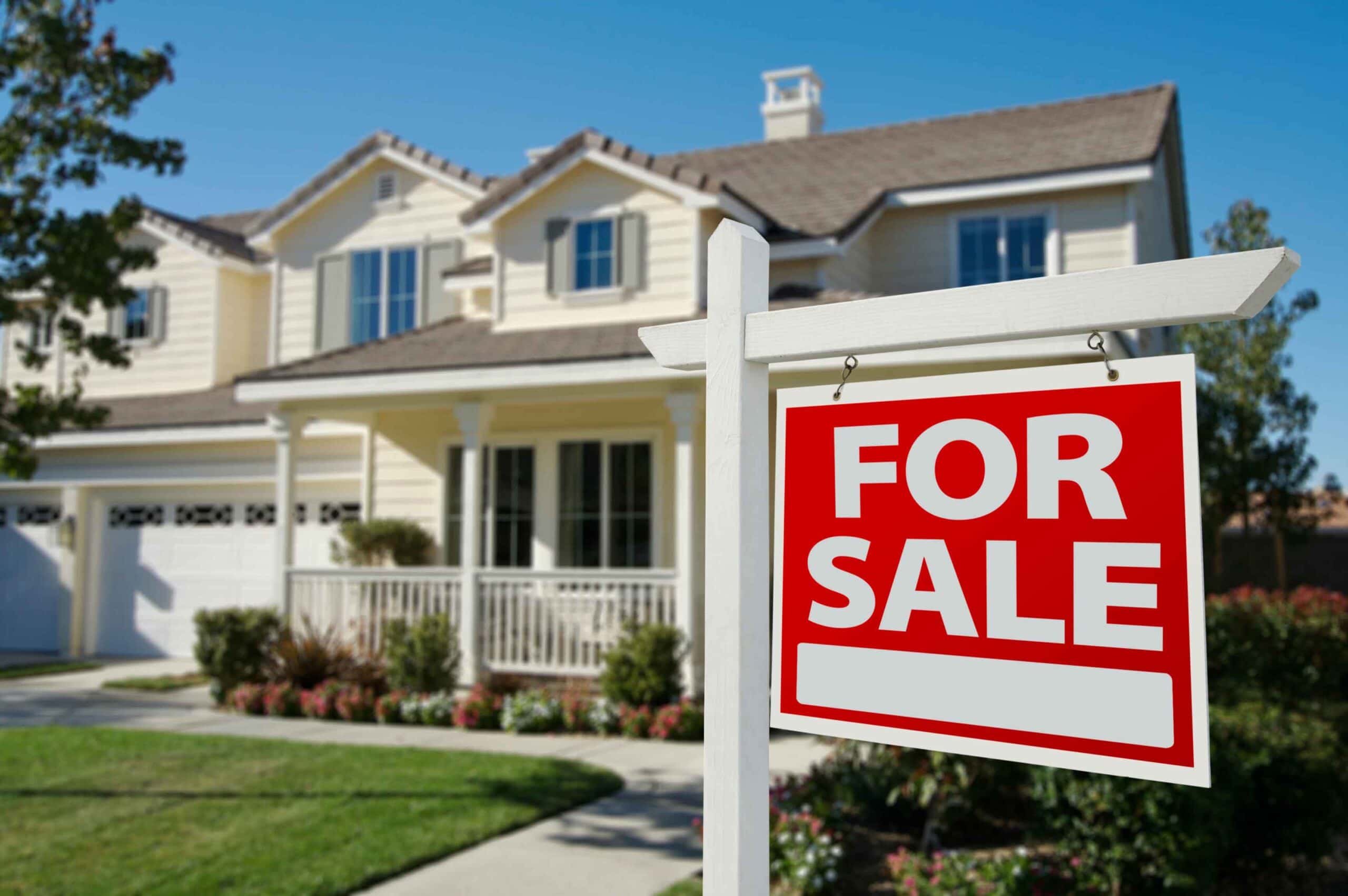How to Increase Real Estate Buyer Leads
Real estate buyer leads are what drive almost every business. While many real estate agents focus on getting listings and because of that competition for listings is often higher, buyer leads are essential in every type of market. In a buyer’s market, everyone wants buyers. There are more homes available than are selling. In a seller’s market, everyone wants listings, but your sellers want buyers. It’s your job to show them how you’re going to find the right buyer for them. If you’ve been in business for twenty years and have a database of tens of thousands of contacts, you may be in more of a maintenance marketing mode. Yet chances are that your business – and database – aren’t as established as that and therefore, regardless of whether it’s a seller’s or buyer’s market, you need to get more buyer leads. Below are the top ways to increase your real estate buyer leads online:
- Be the Local Expert
- Have a Digital First Mentality
- Develop a Page One SEO Strategy
- Reach Your Buyers Wherever They Are
- Segment Your Audience
- Invest in Lead Follow Up
- Give Free Advice
- Find Your Niche
- Get Creative and Diversify
- Measure What Works
- Reach Potential Buyers First
- Treat Social Media Posts and Ads as Conversation Starters, and Continue the Conversation!
- Build Your Network
Read on for more information about each tip and to learn how to drive more buyer leads online.
1. Be the Local Expert
Community is a huge part of real estate. Local content, such as community pages, listing pages by criteria such as type, price, location, school district, lifestyle, and more, and area resources pages are all key. 47% of buyers viewed 3-5 pieces of content before engaging with an agent Having a page one SEO strategy is possible in real estate and even more so, is essential to your ability to drive qualified buyer leads with high lifetime value. Instead of paying third party portals like Zillow for leads that have no awareness of who you are and even after the transaction (if you get to that point), will have far less loyalty than someone who chose to work with you from the beginning, start your relationship with your leads right from the start. Invest in driving leads through your own website or other digital properties (such as your social media pages) for better success in the short term and the long term. Creating high quality, unique, and hyperlocal content is the single best way to stand out, build authority with search engines, and make sure your site appears first when your ideal buyers are searching for real estate in or information about your area. We’ve developed a variety of strategies to put you first in local searches. Learn more about our innovative solutions here or read more about why hyperlocal content is the key to standing out here.
2. Have a Digital First Mentality
For many, the internet is the only place to advertise, to communicate, and to do business right now. The biggest reason for this is obvious – it’s where people are spending their time. In the past two years, well before COVID-19, social distancing, and the “homebody economy” consumed our lives, the world finally decided that digital marketing was as important as many have been saying for decades. Digital ad spending, as a percentage of total advertising spend, finally caught up to time spent online as a percentage of total consumer time spent interacting with media. That was before the pandemic.
Since then, work and play have shifted online with lightning speed. And the pandemic has gone on long enough that many experts predict the behavioral shifts it caused – such as turning to streaming video over TV, flocking to social media sites in droves, and giving new meaning to screen time all the time – are here to stay. For businesses, there are huge advantages to adopting a digital first – or possibly digital only – marketing strategy, including more affordability, more flexibility, better trackability, more agility, and more personalized brand experiences. Simply put, you can attract buyer leads online cheaper, faster, and more effectively than anywhere else. Check out this related post for a deeper dive into what digital first means for real estate companies and marketers.
3. Have a Page One SEO Strategy
Now that your website showcases your local expertise, you have to make sure your potential customers can find you online. There’s still no better way to get found online than through search engine optimization. Making sure your website showcases your local expertise is just one step; making sure search engines see you as a local expert is a critical step as well. And it’s getting harder, because it’s not enough to just create content. Content has to be optimized to be quickly read and analyzed and three factors work against you: firstly, Google’s crawl budget has been consistently shrinking as users create more and more content online (check out this infographic for a helpful visual on just how much new content is created online every minute). 380 new websites are created every minute, and over 4 million blog posts are published on the Internet, over 500 million tweets are sent, and over 5 billion Google searches are made every day. This means not every page on every website gets seen by Google. Far from it, actually. Secondly, Google makes an average of nine algorithm updates per day. That’s right, per day. So, knowing what Google considers a good search result is increasingly difficult and equally essential. And thirdly, there are real estate companies like Zillow, Realtor.com, and Redfin spending over $60k per month on advertising, sometimes concentrated in a few key markets, to be seen first and capture all of the traffic for important searches. It’s incredibly difficult to compete with that and it is possible. Some of the below strategies can be particularly effective in growing your search engine authority and attracting buyer and seller leads, though they’re by no means all encompassing:
- Onsite SEO strategies should be robust and include front end search engine optimization, such as metadata, URL structure, and content optimization (including layout, calls to action, tagging and header optimization, and linking), and back end technical SEO, such as sitemap structure, page speed, linking, user experience, mobile usability, and more. Check out this article for more on what a page one search engine optimization strategy for real estate should entail.
- Focus on offsite SEO and backlinking, both for listings and your overall business. Leverage listing videos on YouTube and listing content on social media. Backlink strategies should be page specific to build page authority and also domain specific, to build the overall domain authority. Make sure social profiles (including all secondary profiles), directories (Yelp, etc.), and Google My Business are all up to date and you’re getting good referral traffic from other reputable and ideally, local websites. Local press is great, chamber of commerce sites, etc. It really helps to build overall SEO and there’s a lot you can do offsite in addition to what you should be doing onsite.
- From an advertising perspective, there’s a lot you can do to improve your organic performance by running paid advertising as well. Clicks on an organic search result increase by up to 50% when a paid search ad for the same company appears above it. So run advertising for your specific towns, neighborhoods, and services. Promote specific listings, through things like dynamic remarketing listing ads and search ads. Leverage responsive search ads which allow you to create multiple headlines and descriptions, and use different images, so Google can pair the combination that best matches the user’s behavior (including the search). Test dynamic listing remarketing ads which feature dynamic content pulled from a product catalog, such as all of your listings, and show users the listing that most matches what they’re looking for (sometimes geographically, sometimes by behavior, need, or segment, such as a certain lifestyle or property type like luxury listings). That way, there’s always the option to show the user a listing specific ad if that’s what they’re searching for. And your sellers will love it too.
Adding paid search to an SEO strategy can boost clicks on the organic result by up to 50%, and adding any advertising can boost trust by up to 4x. Pair paid and organic efforts to maximize effectiveness and text-based search ads and image-based display and social media ads to take advantage of the fact that users are 3x more likely to search for a company after seeing a display ad for them. Because display ad impressions lead to more searches, and more searches where you appear in both the paid and organic spot lead to more clicks on the non-paid spot, you can use advertising to actually improve your search engine ranking and pay less for clicks overall, a big win-win in our book.
4. Reach Your Buyers Wherever They Are
An effective strategy for capturing real estate leads has to go well beyond search to reach your potential customers wherever they are online. An omnichannel advertising strategy is essential to leveraging digital to drive high quality buyer leads. Don’t wait for people to discover you on social media. Don’t hope that when they search for you, you earn their click. Leverage search engine optimization, paid advertising – including paid search, display, and paid social advertising – and social media networking side by side to reach your target audience at the right time, in the right place, with the right message. Consider:
- 41% of all real estate traffic comes from search (organic & paid); the rest comes from other sources like social, display ads on websites, referral links, and direct site visits.
- Users clicking through to a site via paid advertising were 22% more likely to convert on the first visit (source: Union Street Media global data).
- 1/3 of conversions occur on subsequent visits.
This means that by focusing your marketing efforts on one channel, such as search, or one method, such as website content creation, you’re missing out on a huge portion of your potential customers and their business. Targeted advertising, paired with strong content creation and search engine optimization, that continues beyond the first impression, so people who don’t become leads the first time they hear about you aren’t forgotten, can lead to a massive increase in new business, help you significantly grow your buyer leads, and set you up for long term success through a sustainable lead generation system. Learn more about the benefits of omnichannel marketing for real estate here.
5. Segment Your Audience
Because no two buyers are alike, it’s important to segment your audience based on their needs and have amazing content that speaks to each of them separately. Create separate advertising campaigns targeting specific segments, such as buyers interested in living in a certain town vs. buyers looking for a certain lifestyle (lakefront living, for example). Develop personas, or key segments of your target audience or ideal buyers, so you can get really clear on who you want to reach and what you want to say to them. This will also help with everything from advertising targeting to content creation, as knowing who your ideal customer segments are means you can develop strategies, such as targeting investors and creating content about tax implications of buying in certain areas, desirability of second homes, and other topics that would be interesting to each segment. Tools also exist to do things like create lookalike audiences in Facebook targeting people who act like your past leads and/or past customers, and target people who have interacted with your ads, such as clickers, sharers, video viewers, etc. The key with these strategies, as with any online advertising, is to be intentional about how you segment your audience, what you say to them, and where you direct them. Their entire user experience, from the ads they see, to the landing page on your website where they land, should be personalized to them and consistent.
6. Invest in Lead Follow Up
The majority of people looking to buy a home spend a lot of time on research prior to contacting their first agent and certainly before making a decision on what and where to buy. Yet a lot of real estate agents treat buyer leads like they’re only valuable if the buyer is ready to discuss buying a home. 90%+ of consumers did online research before purchasing their last home, which means the vast majority of your next clients will find you online. You probably already know this because you’re thinking about how to get more leads online. But because 78% of new home shoppers visit 3 or more real estate websites prior to taking action on one of those sites, it’s critically important that you have a strategy for staying in front of the people who visit your website once they leave, whether they became a lead or not. Let’s start with those people who never ended up becoming a lead. Use retargeting to serve ads to them and encourage them to come back to your site and reach out. Segment your retargeting audience based on what you know – for example, were they searching for properties, or were they looking at community pages? Maybe they don’t know where they want to live. Or maybe they know where and are looking for available listings within their price range or that meet their needs. How you’d speak with each of these types of people would be different so your ads should be too. For the people who became leads, but went cold after you reached out to them, retargeting can also be very effective. Lead nurturing is the process of developing relationships with potential customers at every stage of the sales funnel, and it’s key to growing your business, as most people need time to make a decision. Lead nurturing requires listening to your potential customers’ needs and providing information they need, such as market updates for the people trying to decide when the right time to sell is, or community information for the people trying to decide where to buy a home. It is time consuming and therefore, most people don’t do it. It is also really effective because selling is not a linear process. According to Gleanster Research:
- 50% of the leads you generate are qualified, but not ready to buy right now.
- 25% of the leads you generate are totally unqualified; they won’t ever buy.
- So at any given time, only 25% of your leads are ready to buy.
A huge difference between a successful company and a mediocre one lies in how the remaining already qualified leads are handled – possibly 50% of your business. These people become part of your sphere and targeted email marketing and retargeting are the best ways to continue the conversation with them without actually having to dedicate a lot of time to it, so you can focus on working your “hot leads” and selling real estate. The reality is, if you stick it out with them, you also have a good chance of being the only name they remember. Because on average, prospects receive ten marketing touches from the time they enter the top of the funnel until they’re closed won customers. And yet…49% of marketers include less than five touches in their lead nurturing programs. So pay attention to every lead and they’ll most likely pay attention to you.
7. Give Free Advice
Because the homebuying process is so long (people spend twelve weeks just researching the home they want to buy, on average) and complex, educational content can be a great way to get in front of potential customers in a meaningful way, to establish likability and trust and win their business without overtly selling to them. The key to this is to give information away for free without expecting anything in return and to focus on educational content that resonates. Carefully consider both the topic and the format and realize that it’s about quality over quantity. Team up with a local lender for a first time homebuyers seminar online and market it before it happens. Look to attract a good amount of people and spend more time making sure the content is really engaging. Make it interactive. Live events and video can be great, but you can also feature educational content on your website and social media. Local community guides, market reports, mortgage advice, financing tips, and more are just some ideas – the key is, the more content you create to help your ideal customer, the easier it’ll be for them to find you and the more trust you’ll build with them, and not everyone has the same need and learns in the same way. So vary your approach and cover multiple topics and formats to maximize the effectiveness of this approach. Your competitive advantage over the aggregators and maybe even your local competitors resides in your ability to out-educate them and help your potential clients as only a truly local expert such as yourself can.
8. Find Your Niche
Real estate is extremely competitive. That’s why establishing a niche can be incredibly helpful in your efforts to stand out. A niche is a segment of the market. It’s defining what you do in a way that appeals to a group of people more than others. For example, if you specialize in waterfront property, somebody looking to buy a multi-family unit in which to live and rent won’t likely see you as an expert they’ll want to contact. And that’s okay. Establishing a niche doesn’t mean you’re refusing to work with people who don’t fall into that segment of the market. What establishing a niche means is defining and communicating what you’re best at. Establish a niche and make sure your marketing – everything from your advertising targeting to the content on the homepage of your website – reflects it and you’ll see better search engine ranking, better engagement from your website visitors, and better stickiness – and, ultimately, close ratios – from the leads you’ll get. Google wants clicks. People are most likely to click on things that resonate emotionally, stand out visually, clearly seem to meet a need they have, and are from companies they trust. Identifying a niche can help you clearly communicate what you do in a way that shows your target audience what’s in it for them. Establishing a niche and consistently and clearly talking about it will also build trust as people will see you as more reliable. And if your niche is really specific, you can speak to it on an emotional level. Consider waterfront properties again for a minute. People who own waterfront properties often look for things like deep water docks, boathouses, certain types of access and limited or no rights of way for others. Talking about these things will help you establish your authority, but why do people want to live on the water in the first place? Tapping into the lifestyle your niche represents can help you connect emotionally with your potential customers, which is also key to standing out, building trust, and winning their business now and in the future.
9. Get Creative and Diversify
If most of your buyers are of the same types of properties, consider ways to diversify and strengthen your business. Don’t shy away from renters, foreclosures, short sales, etc. Even content for things like foreclosures and short sales for which you may not want to attract the most buyers will help you get eyeballs, be seen as relevant by Google, and get the buyers you want. Plus, they may serve as ways to feed you leads down the road. For example, if you partner with a property management or rentals company to handle rentals, but offer to do some marketing for them in exchange for them referring any buyer business to you, you could get a lot of good buyer leads without having to do a ton of work. If any of these areas are not your main focus, that’s fine; just don’t have them linked as prominently on your site and you’ll still get the benefits of a broader pipeline without any negative impact to your brand. The same goes for geographic location. You can get a lot of referral business by referring leads to others in similar markets, or locations where your customers are likely to also own property. A lot of people do this when working with second home buyers, who are likely to have real estate needs in the area where they primarily live as well as where they own other properties. More and more people have offices in the Northeast and Southern U.S. But even if you don’t personally service all of the markets in which your potential buyers might want to buy, you can still have relationships with agents where you refer business to each other and get up to 40% of the commission by doing so.
10. Measure What Works
If you want to get more buyer leads, one of the best ways to do that is to understand where your current leads are coming from. Use Google Analytics, use your CRM, consider working with companies like Union Street Media that provide proprietary marketing analytics – whatever method you use to measure your performance, the important thing is that you’re measuring it. Spending any time on marketing or lead generation is wasted if you’re not going to be able to evaluate it. Instead, make sure specific campaigns are tagged, conversions are being properly tracked from your website, and post-lead analytics, or what people do after they become a lead, are also being evaluated. That way, you can understand what strategies are contributing the most visitors to your website, what content on your website is generating the most leads, and what behaviors or activities are driving the most leads to be ready to buy, among other things. Understanding these will empower you to focus your time and resources on doing more of what works, growing your business in the process. Take a step back and set goals for performance and you’ll see even better results. For a great book on one popular goal setting method, check out Measure What Matters, or read this article.
11. Reach Potential Buyers First
The time it takes you to follow up with leads significantly impacts the lead quality and the potential for business down the road. It’s really important to be first when it comes to engaging with buyers. But responsiveness doesn’t just apply to lead follow up (though you should respond to all leads within five minutes or less), it also applies to your digital content, your relationship throughout the purchase process, and how you handle your relationship after the transaction. 75% of all buyers and sellers work with the first agent they contact, so you want to make sure you’re reaching them well before they’ve decided to reach out to an agent, to make sure yours is the name they think of first.
12. Treat Social Media Posts and Ads as Conversation Starters, and Continue the Conversations!
Most real estate companies and agents know the value of social media and are posting, though possibly not as much as they should, new content on Facebook, Instagram, LinkedIn, Twitter, YouTube, Pinterest, TikTok, or other platforms. To drive buyer leads and get your leads to engage with you when you reach out, consider ways you can improve the quality of your interactions on social media. Instead of just posting a new listing, recently sold listing, or similar content without context, experiment with video, polls, and interactive content like stories. Make sure to respond to comments too. Have fun with it and branch out from real estate where it makes sense. Dreaming about a beach? Ask people to post a picture of their dream house. Feeling frustrated by your children’s constant interruptions while you’re trying to work. Do you think others can relate? Be funny, if that’s who you are, but most importantly, be you. This is where knowing your brand really helps (check out this related article on How to Build Your Brand Online). We’ve seen clients get hundreds of comments on posts that aren’t real estate related, such as posts about new year workout regimens and posts asking for recommendations. People often think very literally about how to market listings and draw attention to our services, whether for buyers, sellers, agents, or a different segment, but content that doesn’t even mention the words “listing”, “buyers”, or “sellers” once can be far more effective in capturing the attention of potential customers, getting your name out, and building likability. It also gives them something shareable to pass along to their sphere, which grows your reach and maximizes your chances of getting your name out there in front of an even bigger audience.
13. Build Your Network
Most real estate agents are seasoned networkers. In fact, some focus solely on networking as a way to grow their business and even go so far as to make the majority of their revenue from referral leads only. Whether you’re a buyer’s agent, listing agent, focus solely on referrals, or something else altogether (including a combination of these), to maximize your efforts, rethink the value of networking. Consider whether you’re making the right connections with the right people or simply networking to network. Leveraging networking to expand your business requires focus and discipline and too often, people look at networking as a volume game. Similar to some of what we’ve talked about above, the most effective networking strategy is one that’s tailored to the groups and affiliations that best represent who you are and what your niche is, as well as that help you tap into your current sphere of influence and why they sought you out in the first place. Think of networking as a way to build relationships as much as create relationships. What can you do and in what can you participate that gives you more time and helps you foster deeper relationships with the people who already know you and the key influencers who are advocating for you today, as well as the key people you don’t know who you’d like to. Oftentimes, this means getting involved in professional affiliations such as leadership groups, with your MLS, your franchise (or a company like Leading Real Estate Companies of the World if you’re independent), your chamber of commerce, and others. It also means giving back to and being deeply involved in your community, which is something that many real estate professionals are already exceptionally good at and committed to doing. The key is to track your networking activity and integrate networking into your other marketing efforts, so someone you’re seeing in person one month will receive a personalized email from you the next month, see an ad announcing an upcoming event after they see your email, and so on and so on.
Listed above are the most effective strategies to increase buyer leads. We’d love to discuss what strategies would work best for your specific needs, so contact us today to get tailored advice on how to maximize the impact of your digital marketing.










